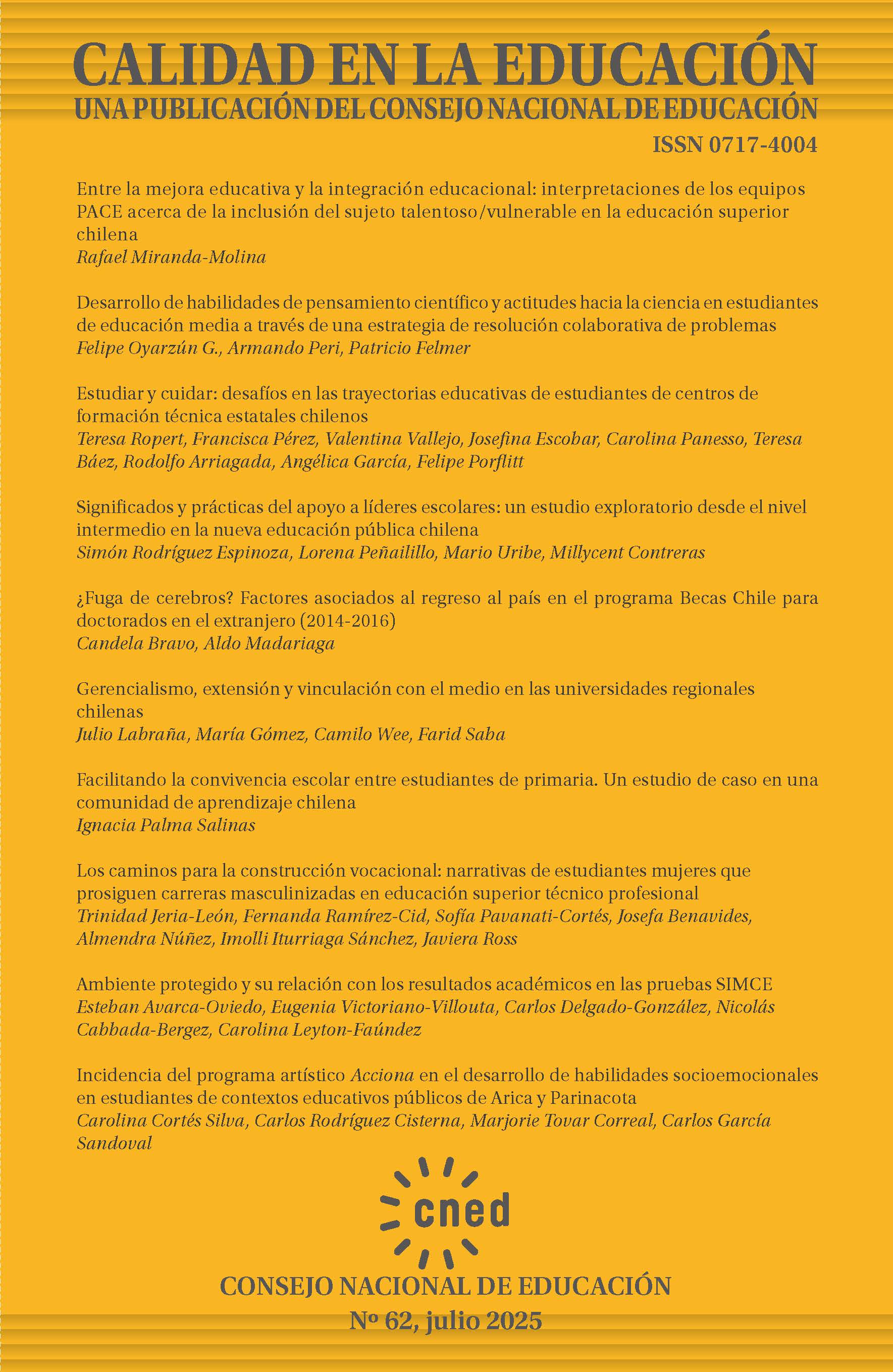Developing Scientific Thinking Skills and Attitudes toward Science in Secondary School Students through a Collaborative Problem-Solving Strategy
DOI:
https://doi.org/10.31619/caledu.n62.1580Keywords:
Attitude Toward Science, Professional Development of Teachers, Scientific Literacy, Scientific SkillsAbstract
The development of scientific skills and attitudes toward science is often diminished among students from lower socioeconomic backgrounds, despite the fact that the national curriculum presents these as a central objective. For this reason, this research examines the effect of a teacher professional development program (TPDP), called Activating Problem Solving in Classrooms (Activando la Resolución de Problemas en las Aulas, ARPA), on the development of scientific skills and attitudes among students at a public school in Chile with a high vulnerability index. A quantitative experimental study was carried out, in which teachers participating in the TPDP-ARPA implemented a collaborative problem-solving (CPS) methodology in the classroom with an experimental group, while a control group conducted regular academic activities. Before and after the intervention, students' levels of scientific literacy, degree of mastery of scientific skills, and attitudes toward science were assessed. The results showed that only students in the experimental group improved their level of scientific literacy and scientific skills, such as: understanding elements of research design and how these affect scientific findings and conclusions; solving problems using quantitative skills, including probability and statistics; and justifying inferences, predictions, and conclusions based on quantitative data. The TDPD also showed a positive impact on students' attitudes toward science in the experimental group. This effect was not observed in the control group, whose attitudes toward science either remained stable or became less positive over time. In conclusion, the TPDP—through the implementation of teaching/learning methodologies based on collaborative scientific problem solving—promotes the development of scientific skills, improves scientific literacy, and contributes to a more positive appreciation of science and science classes among students.
Downloads
Published
Issue
Section
License

This work is licensed under a Creative Commons Attribution 4.0 International License.
Authors retain their Copyright and only transfer a part of these to the journal, accepting the following conditions:
Authors keep their rights as authors and guarantee the right to the journal for the first publication of their work, which is simultaneously subject to the Creative Commons Attribution license allowing third parties to share the study accrediting the author and first publication in this journal.
Authors may adopt other non-exclusive license agreements for distribution of the version of the published work (e.g. inclusion in an institutional thematic file or publication in a monographic volume) accrediting initial publication in this journal.
Authors are allowed and recommended to share their work over the Internet (e.g. in institutional telematic files or their website) before and during the submission process, which may lead to interesting exchanges and increased citation of the published work. (See The effect of open access).

